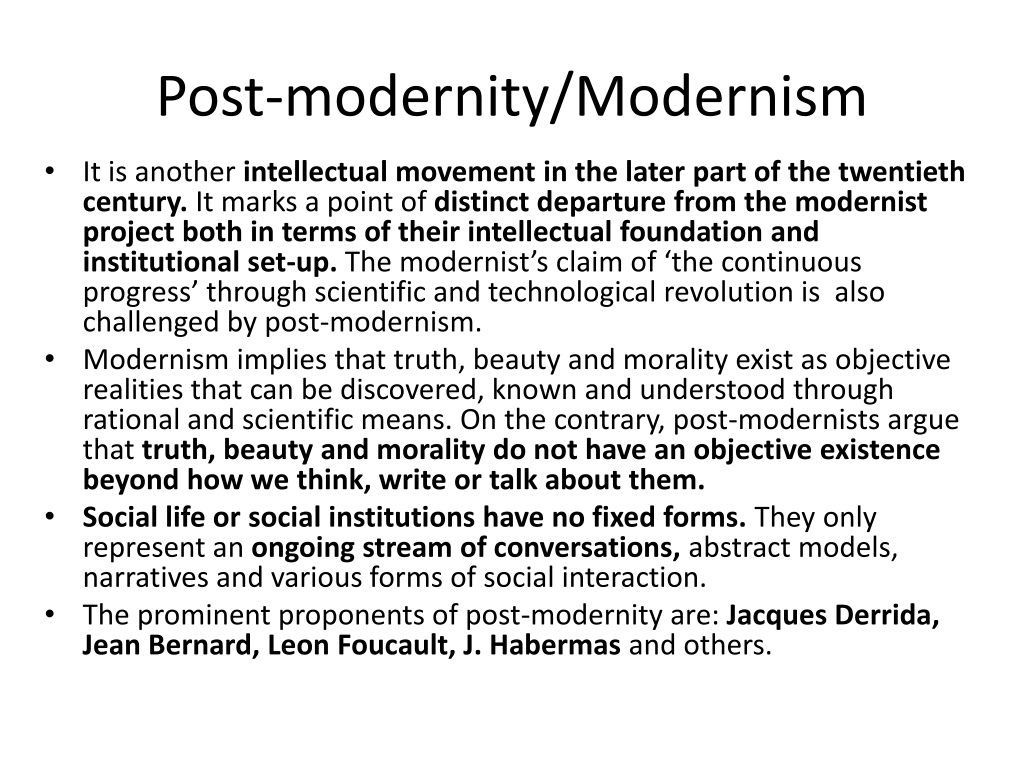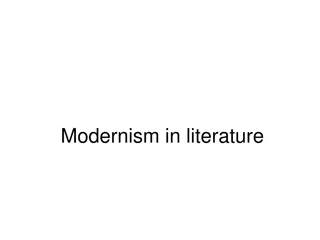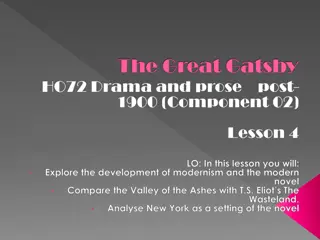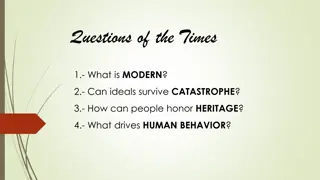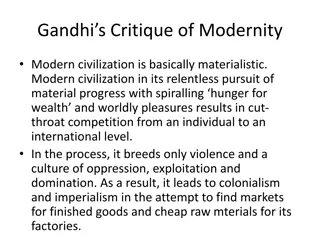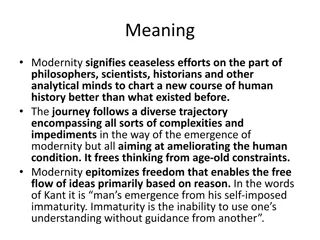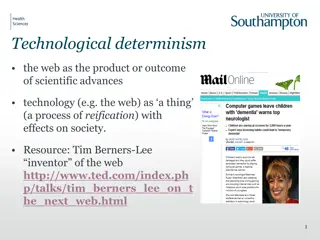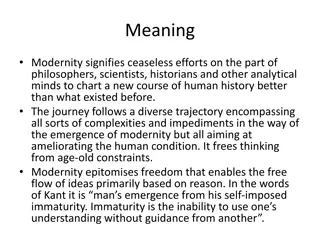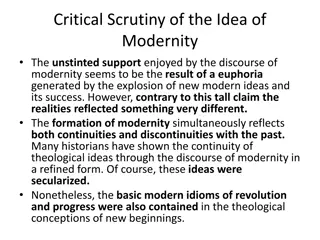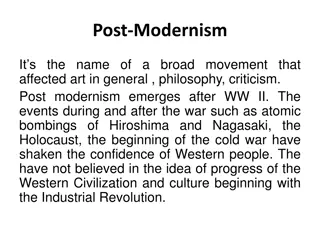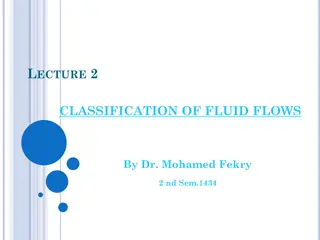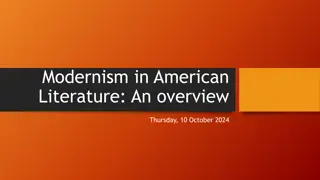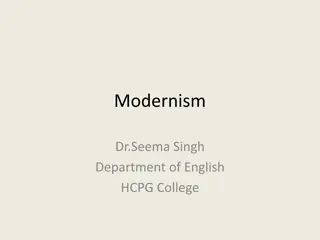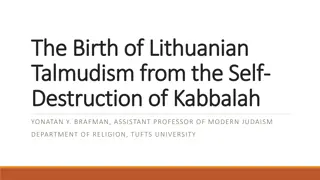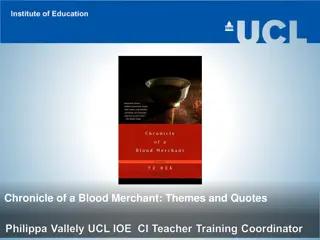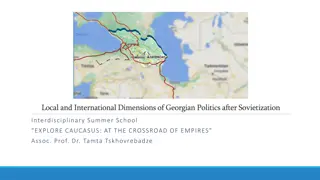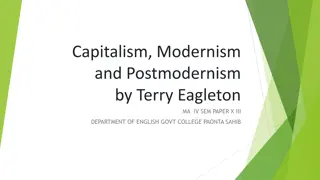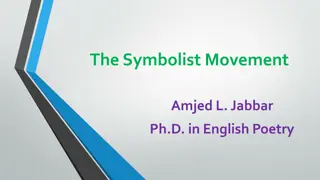Understanding Post-Modernity versus Modernism
Post-modernity challenges the foundational ideals of modernism, rejecting the notion of objective truth, beauty, and morality in favor of a more fluid and subjective view. Post-modernism emphasizes the pervasiveness of power dynamics in social structures, critiques grand narratives and ideologies, and questions the achievements and implications of modernity. Proponents like Derrida and Foucault offer insights into deconstruction, power analysis, and societal norms.
Download Presentation

Please find below an Image/Link to download the presentation.
The content on the website is provided AS IS for your information and personal use only. It may not be sold, licensed, or shared on other websites without obtaining consent from the author. Download presentation by click this link. If you encounter any issues during the download, it is possible that the publisher has removed the file from their server.
E N D
Presentation Transcript
Post-modernity/Modernism It is another intellectual movement in the later part of the twentieth century. It marks a point of distinct departure from the modernist project both in terms of their intellectual foundation and institutional set-up. The modernist s claim of the continuous progress through scientific and technological revolution is also challenged by post-modernism. Modernism implies that truth, beauty and morality exist as objective realities that can be discovered, known and understood through rational and scientific means. On the contrary, post-modernists argue that truth, beauty and morality do not have an objective existence beyond how we think, write or talk about them. Social life or social institutions have no fixed forms. They only represent an ongoing stream of conversations, abstract models, narratives and various forms of social interaction. The prominent proponents of post-modernity are: Jacques Derrida, Jean Bernard, Leon Foucault, J. Habermas and others.
Post-modern Analysis of Power Post-modernism holds that the structure of privilege and power pervades the entire social system. It operates in the field of our language as well as our social life. Post-modernity has its own view on art, literature, architecture and criticism including literary criticism. Its implications in our language have been brought out by Jacques Derrida, a French philosopher wherein he has outlined his concept of Deconstruction . Its functioning in our social life has been amply demonstrated by Michel Foucault, another French philosopher. Foucault has argued that political theory and discourse continue to assume a paradigm of power derived from pre-modern experience. People are now ruled through social institutions which rise up from the ground and reach out to people through various social channels. These institutions set up disciplinary norms and make people conform to the prevailing standards of reason, order and good taste.
Rejection of the Grand Narratives/Grand Theories/ Ideologies The post-modernists expressed their rejection of grand theory' designed to establish wide-ranging, coherent, definitive theories and interpretations which ideally answer all our questions. Thus, post- modernity is characterized by the rejection of grand narratives , i.e. the major systems of religious, political and cultural ideas (such as Christianity, emancipation, capitalism, socialism and technological progress). In the past these ideas had been used to underpin social and political institutions and practices and intellectual styles. The various forms of discourse about these ideas had proved to be incommensurable. Consequently, a consensus which could serve as an objective basis for conceptions of justice and truth was not even ideally attainable.
Tall Claims of Modernity Challenged by Post-modernism It asserts that the modernist project of raising intellectual and institutional set-up have, despite their contrary claims, only resulted in reinforcing inequality, inequity, exploitation and domination of common people. Post-modernists also view the power of human rationality and its concomitant scientific and technological revolution with a lot of suspicion. Similarly, champions of post-modern feminism have argued that feminist movement should not make identical demands for all categories of women. They have pleaded for due recognition of the diversity of women s movements in different parts of the world. For example, this diversity may arise from awareness of the radical difference between the conditions of a white professional woman in a Western country and a poverty-stricken woman in a different socio-cultural set-up.
Epistemological Tool of Proponents of Modernity Questioned Questioning the epistemological tool of the proponents of modernity, the post-modernists challenge the modernist assertion that only scientific thinking could yield objective knowledge and universal truth. Instead, they repose their faith in the contigental, contextual and situational nature of truth. The post-modernist perspective on political theory regards the prevalent norms of truth, beauty and morality as unacceptable because they simply reflect the mode of thinking of power- holders in society. Thus, there can be no objective criteria of determining the nature of truth, beauty and morality. It also follows from this that there can not be a singular notion of modernity or it can not be confined to a particular time scale. There are pluralist conceptions of the processes of modernity in society and the concept of modernity has been constantly changing. No particular description of the real can be treated as finally true.
Concluding Observations The running thread that binds modernity and its discourses- its meaning, philosophical postulates and its critical analysis as well- together is a multi-causal explanation identifying its crucial impacts on diverse aspects of social life. In consonance with this perspective it defies any singular account and explanation of modernity. Similarly the beginning of modernity is also not attributed to a single historical time. This fact is recognized by many social theorists who lend credence to unevenness and difference. This has given rise to a more plural conception of the historical process of formation of modern societies.
Concluding Observations (contd.) This plural conception lays more stress on varied paths to development, diverse outcomes, ideas of difference, unevenness, contradiction and contingency. However, it does not mean that historical accounts are the results of purely random events. But it does imply that in history everything does not seamlessly unfold according to some internal logic or inevitable laws. Modernity is not monolithic, and it contains many competing strands. In fact dissatisfaction and alienation from modernity is itself a characteristically modern pose. Yet it is not directed against its wholesale rejection. The idea of modernity has immense potentiality to cope with ever emerging challenges. The challenges that surfaced in the last decade of the twentieth century (post- modernity) are also theorized within the broader framework of modernity.
